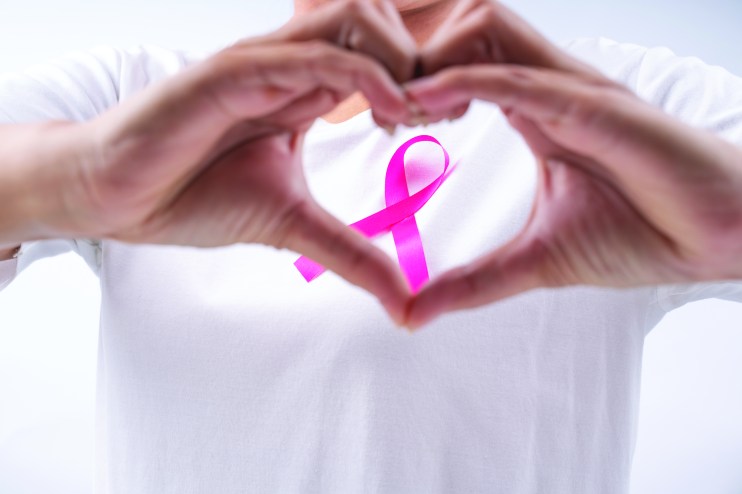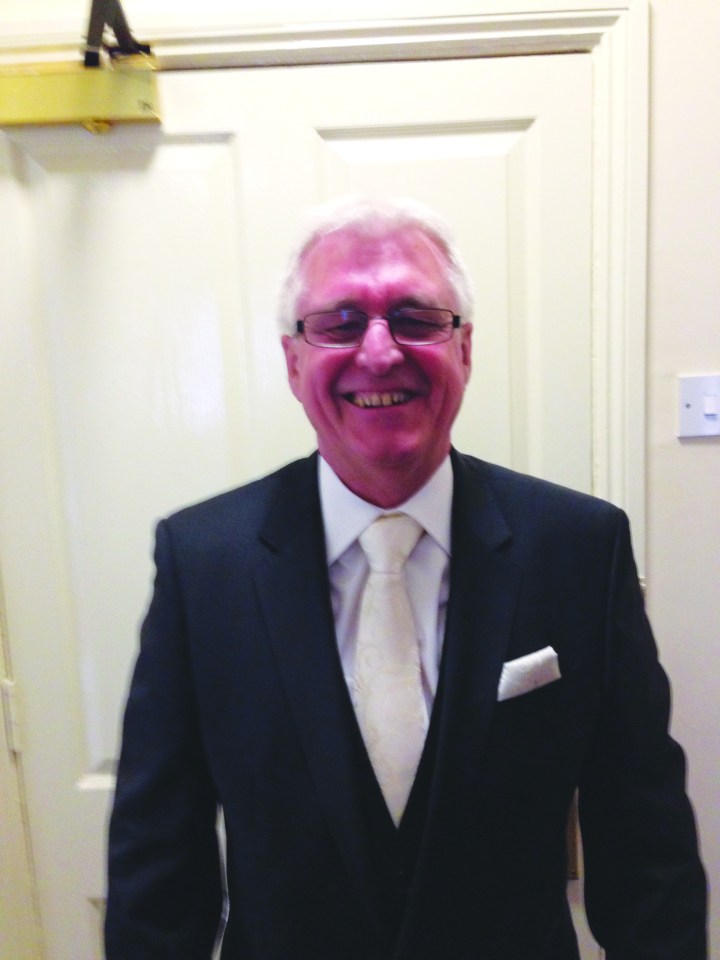Spotting the signs of cancer early could save your life

Being body aware and seeking advice from your GP practice if you notice anything unusual is your first line of defence against cancer
Nobody needs to be reminded of the seriousness of cancer. You can, however, play an active part in making sure that, should it happen to you or a loved one, you’re able to get an early diagnosis and maximise your chance of making a full recovery.
Being aware of the symptoms of cancer, many of which can be more nuanced and less tangible than you might expect, and a willingness to take any concerns to your GP practice is your first line of defence. It’s also important to remember that, in most cases, symptoms are not a sign of anything serious, so tackling them early will give your healthcare professionals a chance to rule out cancer, giving you peace of mind and allowing you to pursue an alternative diagnosis.
The symptoms of cancers can vary drastically, from the tell-tale three-week or more cough that can indicate lung cancer, to the discovery of a lump anywhere on your body, or finding blood in either your urine or faeces.
Other cancers can have less tangible symptoms. These include cancers of the blood, which make up the fifth most common cancer in the UK with over 41,000 people diagnosed every year. Despite this, awareness of blood cancer symptoms are low, with over half of UK adults not being able to name a single symptom.
Diagnosing cancer earlier can save lives, so it’s vitally important that you contact your GP practice if you spot any changes in your body
Things you should look out for can include breathlessness, unexplained weight loss, frequent infections, unexplained night sweats and unexpected or unexplained bruising or bleeding.
Even some more common ailments can be an early indicator of cancer, should you experience them for three or more weeks, including tummy trouble such as discomfort or diarrhoea, unexplained pain or discomfort, feeling tired or unwell for no obvious reason, heartburn or indigestion, or unusual, pale or greasy poo. For more information about cancer symptoms you can go to nhs.uk/cancersymptoms.
While these are all potential ‘red flags’, the best judge of what is ‘normal’ for you… is you. Nobody knows your body like you do, so nobody will be able to spot unexpected changes as quickly as you can.
So be body aware – if something feels ‘off’ then speak to your GP practice. Your GP will be able to refer you for tests and start you on your journey to receiving the all-clear or starting the treatment you need. Never feel like you’re making a fuss or taking up space in the NHS that could be used by someone else: your GP practice is there for you and making an early diagnosis – be it for cancer or another illness – is always the best possible outcome.
The idea of cancer – even the word itself – is scary but the best way to allay your fears is to seek advice as soon as you can. Likewise should a loved one experience changes they can’t account for, you should encourage them to see their GP practice. There is no stigma in asking for advice if something doesn’t feel right.
NHS England’s National Clinical Director for Cancer, Professor Peter Johnson, said: “Cancer symptoms can come in different shapes and sizes and some can be less obvious than others, so it’s important to know what is normal for you and take notice of any changes.
“We know that many people don’t want to bother anyone with their health concerns – particularly if they are unsure about them – but we would always prefer you to contact your GP practice so that you can be checked. If something in your body doesn’t feel right, please come forward. It might be nothing serious, but it could save your life.
“Diagnosing cancer earlier can save lives, so we would prefer to see you sooner when cancer can be treated more easily and successfully”
If something in your body doesn’t feel right contact your GP practice. For more information go to nhs.uk/cancersymptoms
David Day, 70, is a retired IT consultant living near Huntingdon, Cambridgeshire. He was diagnosed with bladder cancer after spotting blood in his urine. He says going to his GP early could have saved his life

I saw a cancer-awareness TV campaign and it made me contact my GP – thank goodness I did
David Day
When did you first notice symptoms?
I first had symptoms of bladder cancer back in December 2013, a few months after an NHS campaign on the TV about checking your urine for blood. So when I saw blood in my urine every time I went to the toilet for about a week, I rang the GP and got an appointment.
At the time I didn’t think it was cancer, I thought it was a UTI. But thank goodness for that TV campaign because, to be honest, I probably wouldn’t have taken it as seriously without it.
What happened at the GP?
The GP did a quick dip test and referred me to the urology department of Addenbrooke’s Hospital. I had a cystoscopy – a camera into the bladder – and they noticed a tumour. I was awake and watching it on TV and saw what looked like a long-legged mushroom on the screen.
I said, ‘What’s that?’ and the consultant said, ‘We’ll talk about that in a minute’. Then they went to get my wife from the waiting room. She had to do the ‘walk of fear’ into the operating room. It was scary.
The consultant then said, ‘You’ve got bladder cancer’. That was a bit of a shock. But I didn’t think I was going to die because it was just this little mushroom, not the big black blobs you see on your lungs on TV. In fact, my wife and I were quite blasé about it – I don’t think I was taking it in.
Tell us about your treatment
They referred me to the oncology department who admitted me fairly quickly to have the tumour removed. I was lucky that mine was not muscle invasive, it was all in the bladder and hadn’t gone through the wall. I’d had scans to determine if the cancer had spread to any other parts of my body, which also came back clear.
The consultant said, ‘We’ve caught it early enough’ – it was high grade but it wasn’t invasive, which was a big plus.
After it was removed, I was given a choice of three treatments and chose to have six weeks of BCG treatment – similar to the vaccine you have at school for TB. Although this was one injection administered into the bladder via a catheter every week for six weeks.
Then they did another cystoscopy to see if any tumours had returned. I was still clear but then had another course of BCG treatment – infusions once a week for three weeks every three months, then another cystoscopy to keep on checking.
I had some pretty bad reactions and was in bed for a couple of months but I slowly started to get back to a normal life. Now I don’t have issues with my bladder. I try to play golf and we travel as much as I can – I’ve just got back from Turkey and went to New Zealand in May.
Do you have any ongoing issues?
I have an annual cystoscopy and I get a big lump of joy in my throat when they tell me it’s clear. My next one, next May, is my tenth and it should be the last. I’ll be over the moon when they say they don’t need to see me again.
I was lucky it was caught early and that there’d been a TV campaign that summer. The urology and oncology departments were absolutely amazing and I’m still in contact with the specialist nurse who gave me all those injections.